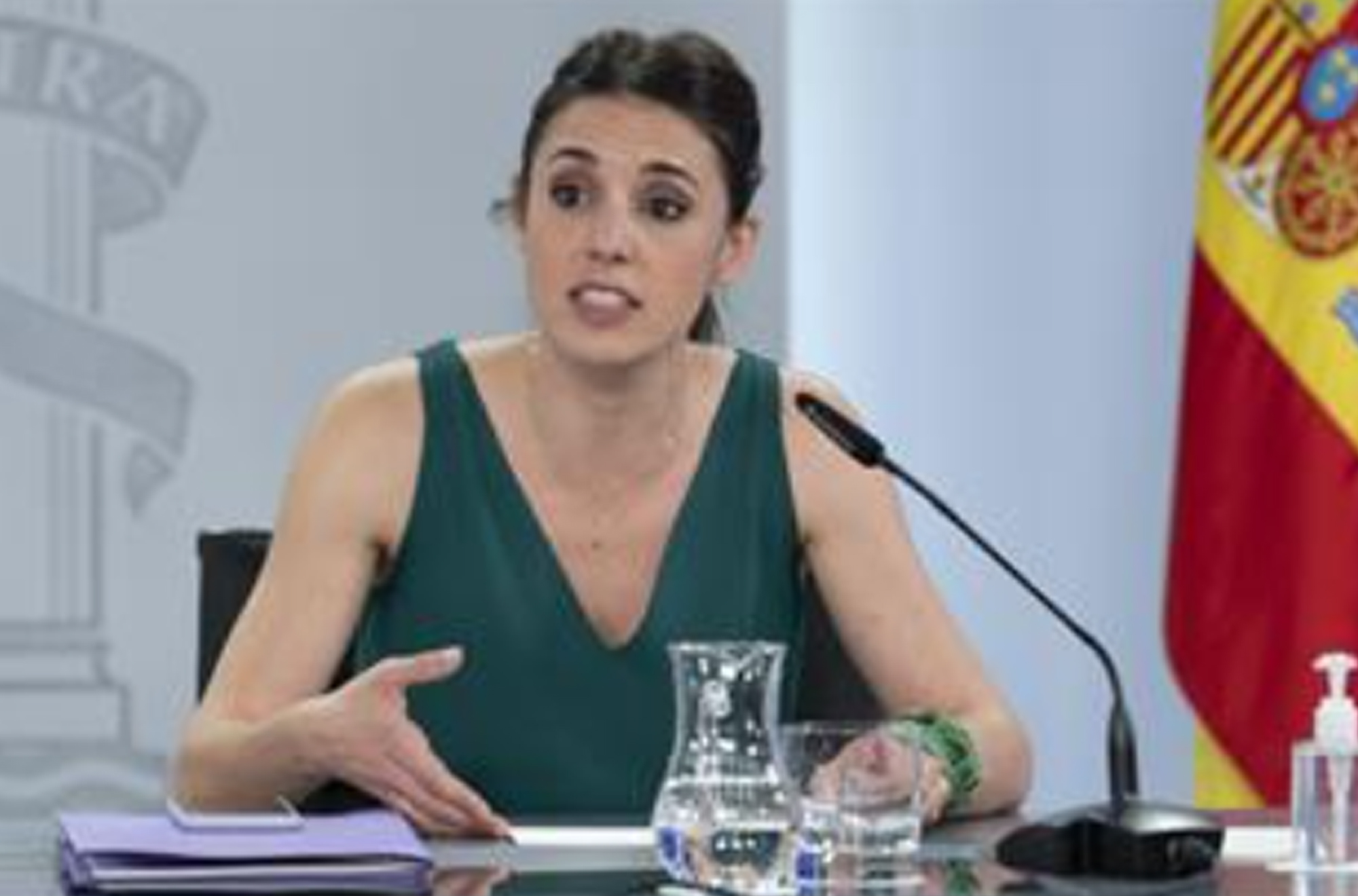
Next week, a new draft law will be debated, prepared under the direction of Irene Montero, Spanish Minister for Equality (above). It covers not only abortion but much more. The law will replace the 2010 abortion law, so it needs a full debate – first, in the Council of Ministers, and then in the two houses of the Congress, the Congress of Deputies, and the Senate, where the text may or may not be amended.
On 17 May 2022, the Council of Ministers approved the bill without amending it. That day, the government website, La Moncloa, reported: “The Government is reforming the law on sexual and reproductive health and the voluntary termination of pregnancy”. Now it will go to both houses of the Congress. See the website for the full statement by the Equality Minster Irene Montero. At the end of her statement, she gave the following thanks:
The Minister for Equality thanks all the ministries that have participated in drafting the reform and the President of the Government, Pedro Sánchez, for their work “for his trust and commitment to this being a feminist government that is at the forefront of the international scene” .
Montero also recognised the contributions of the feminist movement: “the architects of the great feminist advances at the institutional level in our country and of the private clinics for the termination of pregnancy”.
Finally, Montero showed her support for all the women in different countries who fight for their sexual and reproductive rights and for free, safe and free abortion.”
The main clauses of the bill
- Menstrual health is part of the right to health, which must be equal for all – three days of sick leave under medical supervision, with the ability to extend to five, for those who have incapacitating menstrual periods. Free hygiene products for those seen by social services and prisoners, to be extended gradually to all. No tax on these products.
- Reproductive health – Paid leave before childbirth, from week 36 until birth. Intersectional and non-discriminatory approach. Protocols against forced abortion, contraception and sterilization, with special attention to women with disabilities.
- Voluntary termination of pregnancy – abortion is on request until the 14th week of gestation and, from then until the 21st week, therapeutic abortion is permitted, that is, for medical reasons such as malformation of the fetus or risk to the woman’s life. Access to abortion from the public health system provided in each autonomous province, at least in the provincial capitals, aiming for equal access for all women, and access from an accredited clinic otherwise. Registration of conscientious objection will apply to both public and private sector abortions.
- From the age of 16, young women can have an abortion without parental/guardian’s permission. The current three days’ mandatory reflection is eliminated.
- The obligation to provide women with information about continuing the pregnancy is removed, unless they request it.
- Contraception – free hormonal methods, including long-acting ones, financed by the public health system, and within the framework of sex education campaigns. Dispensing of barrier methods in educational centres and prisons.
- Surrogacy is prohibited as a form of violence against women. Spanish couples who go abroad for this service can be prosecuted.
SOURCES: El País, by Isabel Valdes, 12 May 2022; El Gobierno reforma la ley de salud sexual y reproductiva y de interrupción voluntaria del embarazo, La Moncloa, 17 May 2022 + PHOTO by Pool Moncloa/Borja Puig de la Bellacasa



